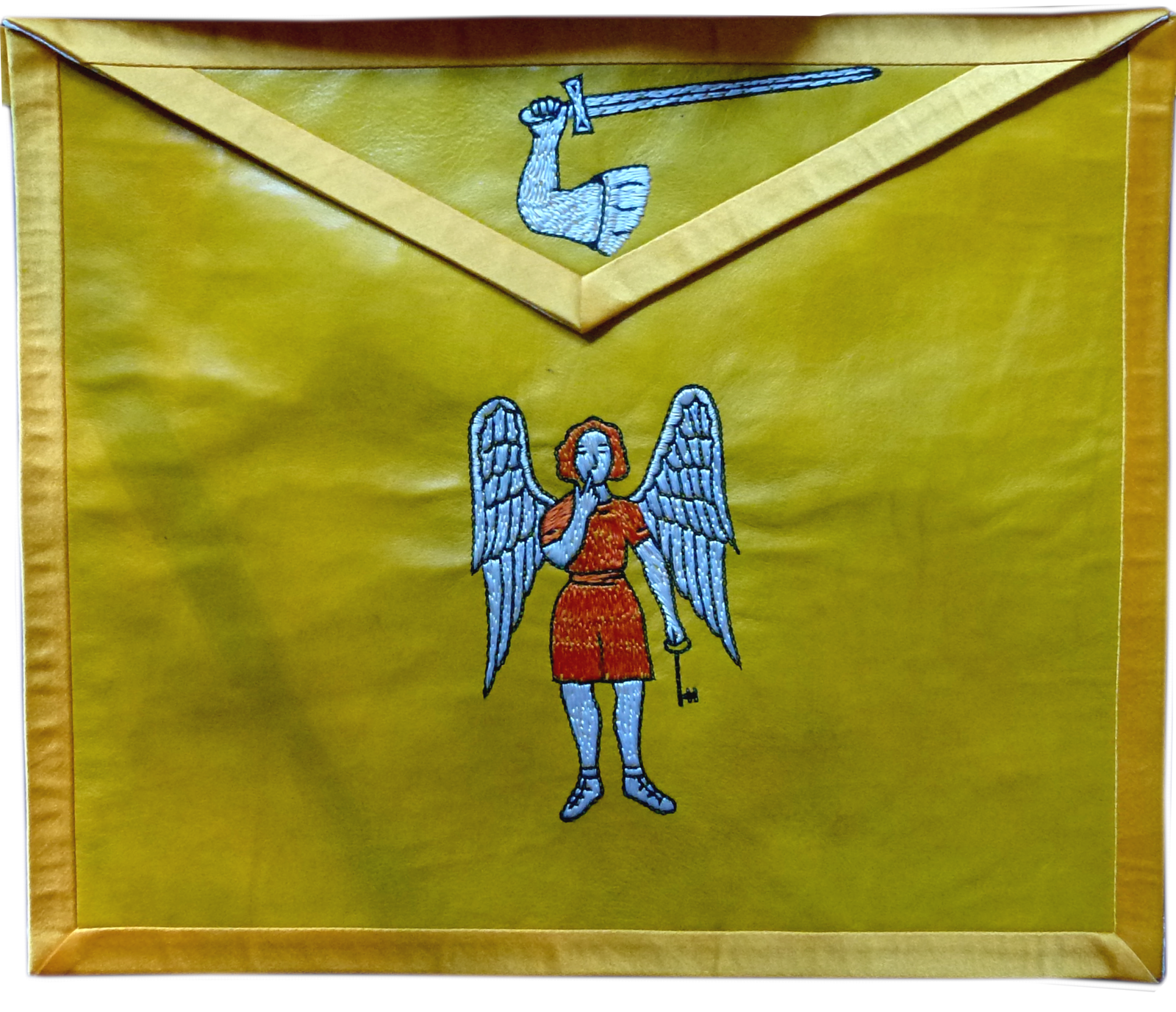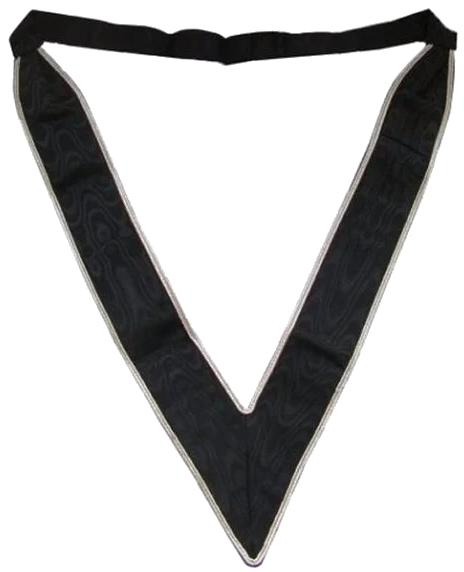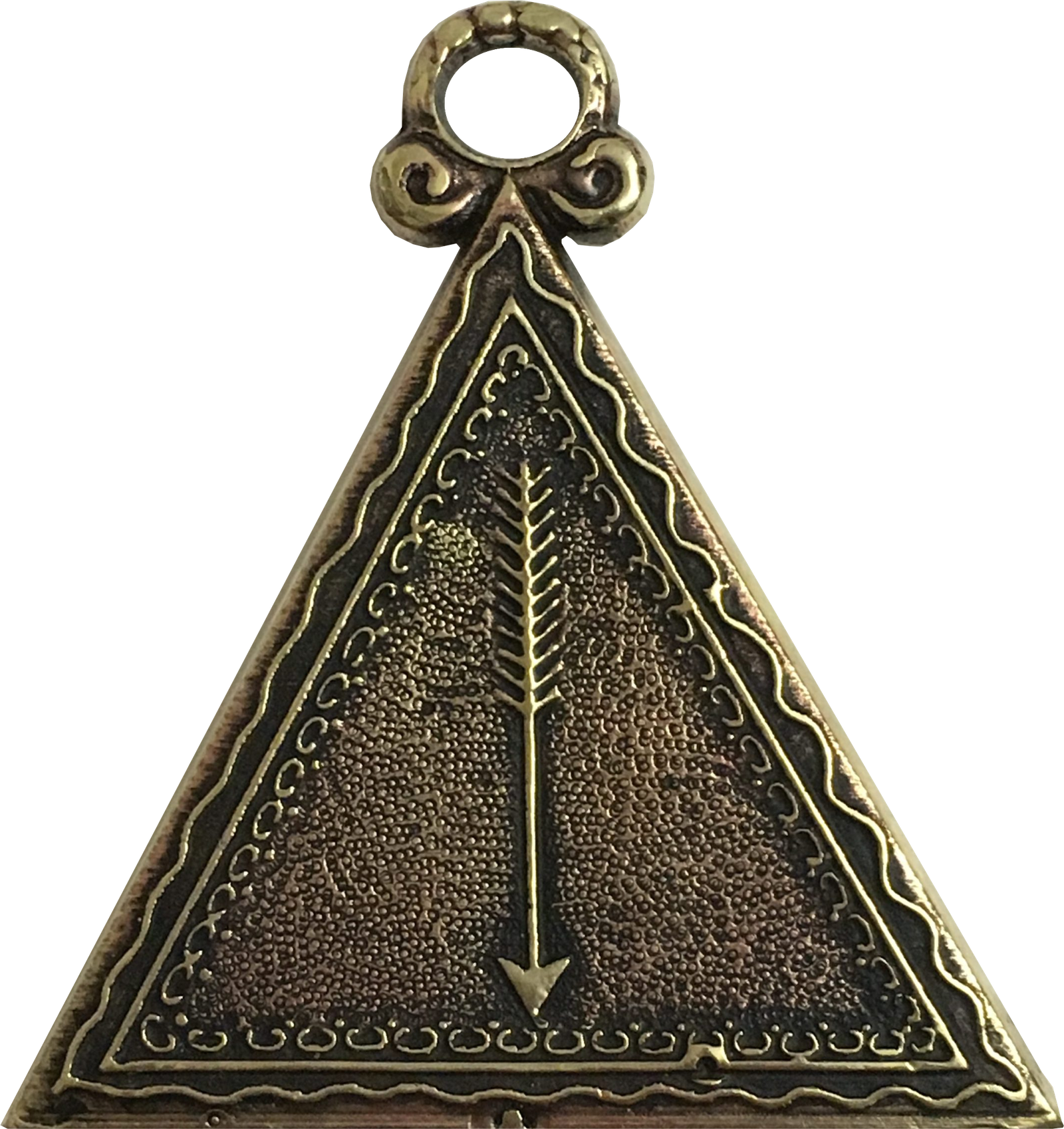ANCIENT & ACCEPTED Scottish rite: 21st° DEGREE – Noachite, or Prussian knight
In Summary:
The 21st degree “Noachite or Prussian Knight” in the southern jurisdiction of the Scottish Rite is a degree that emphasizes the importance of being modest and humble, and not being vain-glorious or filled with self-conceit. The degree also charges its members to not be wiser in their own opinion than the deity and not to find fault with the deity’s works or try to improve upon them.
Initial Note:
The lesson from this degree is to learn that arrogance; defamation and cowardice are unworthy attributes of a mason and that humility, modesty, and courtesy are the true virtues of men and Masons.
Regalia Notes:
The apron and gloves of this degree are yellow. On the upper part of the apron is an arm, naked and upraised, holding a naked sword. Under it is a human figure, erect, with wings, the forefinger of his right hand on his lips; in his left hand he holds a key.
He is the Egyptian figure of silence, called by the Greeks Hippocrates, though the wings are an addition. Plato said the wings symbolized ‘intelligence’. To the alchemists, they stood for the higher, active, male principle.
The order is a broad black ribbon, worn from right to left. The jewel is a silver, full moon, suspended from the third buttonhole of the vest, or a golden triangle traversed by an arrow, point-upward, suspended from the collar.
On the jewel is an arm upraised, holding a naked sword, and around it is the motto, Fiat Justitia, Ruat Coelum, meaning ‘Let there be Justice, though the Heavens fall’.
These were the words of William Murray, First Earl of Mansfield (1704-1793), Lord Chief Justice of England, uttered in the case of Rex vs. Wilkes, June 8, 1768.
Duties are:
• Be humble and modest, trusting in God. Be steadfast and courageous in the face of adversity.
For Reflection:
• Do you keep the ideal of justice before your own interests?
Lessons:
• The downfall of evil is certain. A free and independent judiciary is necessary for human progress. Journalism should be fair, just, and responsible.
Important Symbols:
• Masked brothers, full moon, sword of a knight.
Additional Notes:
This degree was formerly subtitled “the Masonic Key” in Etienne Morin’s Order of the Royal Secret. Prior to Pike’s reworking, it was the object of much controversy. It abandons the Hiramic legend and the building of Solomon’s Temple entirely and, in its earlier workings, was founded operatively on the building of the Tower of Babel. Mackey says of it:
“… it is misplaced in any series of Degrees supposed to emanate from Solomon’s Temple. It is, as an unfitting link, an unsightly interruption of the chain of legendary symbolism substituting Noah for Solomon and Peleg for Hiram Abif. … That was ever adopted into the Masonic system is only to be attributed to the passion for advanced Degrees which prevailed in France in the middle of the eighteenth century” (Vol II, p. 714)
Recognizing this incongruity, Pike based his ritual on a remarkable German judicial institution of the Middle Ages known as the Vehmgericht, or secret tribunal. He may have chosen this institution for several reasons. Pike was a noted and self-taught lawyer who practiced both in Arkansas and New Orleans. Thus, he had more than a casual interest in the history of law and jurisprudence.
Secondly, since this secret tribunal developed in the Middle Ages when knighthood and chivalry flowered, it is more in line chronologically with other council degrees than the version which based its ceremony on the Noachites (descendants of Noah) and the story of the Tower of Babel. Only a hint of this remains in the present ritual — the recitation to remember the fate of Phaleg, called in the King James Bible “Peleg”. Phaleg, along with many other descendants of Noah, began to build a tower whose top may reach heaven, the Tower of Babel.
For this effrontery to God, their speech was confounded and they were scattered over the whole earth (Genesis 11). In the current version of the degree the parallel to the moral lesson of this story is found in the fate of one who acts boldly and with conceit and does not live within God’s will.
During its most powerful period, the Vehmgericht was a closed court that met only at night and possessed extraordinary power. To become a judge in the tribunal, a Freischoffen, was an honor and brought privileges with the position. The prospective judge was obliged.
“… to prove he was free-born, of a good family, not suspected of any misdeeds, and was in the enjoyment of all his rights; and finally two Freischoffen were obliged to become his security. .. A solemn oath held all the members united and not even in the confessional were they suffered to reveal the secret of the Vehm tribunal; neither were the clergy themselves admitted into it” (Legenda XIX-XXX, p.11)
In its early years almost all princes, nobles, and knights became Freischoffen. They possessed a rite of initiation and had both a secret sign and peculiar greeting whereby they recognized each other. Eventually an association of several thousand men from the highest to the lowest classes spread throughout Germany. The members were both judged and punished freely, not subject to account for what they did. Punishments were banishment and death by hanging at the tree or post nearest to where the condemned criminal was found; if caught in the commission of a crime, the criminal was hanged without a trial. The Freischoffen were only required to stick a knife in the ground close to the body as a sign that the sentence of the Vehmgericht had been executed. At the end of the 15th century, the power and authority of the Vehmgericht deteriorated for the reasons mentioned by Pike:
“Such power placed in human hands without the protecting check of publicity and responsibility could not long exist without misuse. In the great development and extension of the association, it could not be avoided but that unworthy individuals should be received as members who used the power confided to them for the sole satisfaction of their revengeful and baser passions” (Legenda XIX-XXX p. 18-19).
Sources:
Purchase ‘A Bridge To Light‘ by Rex R. Hutchens
Purchase ‘Morals & Dogma‘ by Albert Pike.

‘Noachite, or Prussian Knight’
Please view the video on the left, for a more detailed explanation of the 21st° Degree.



